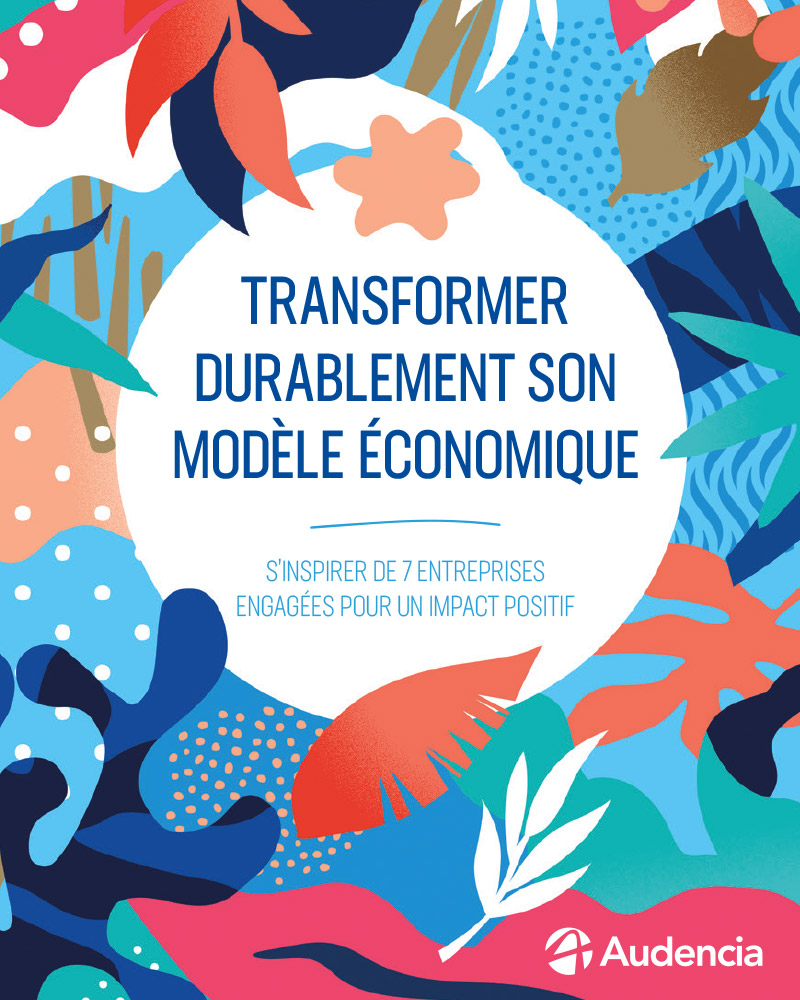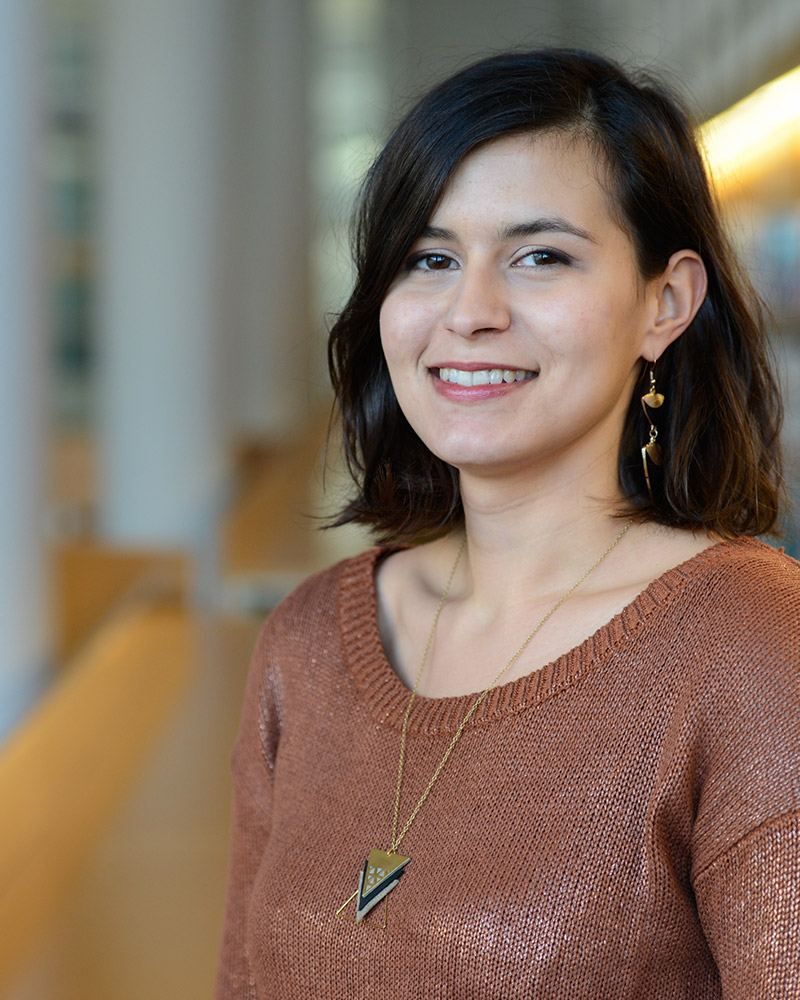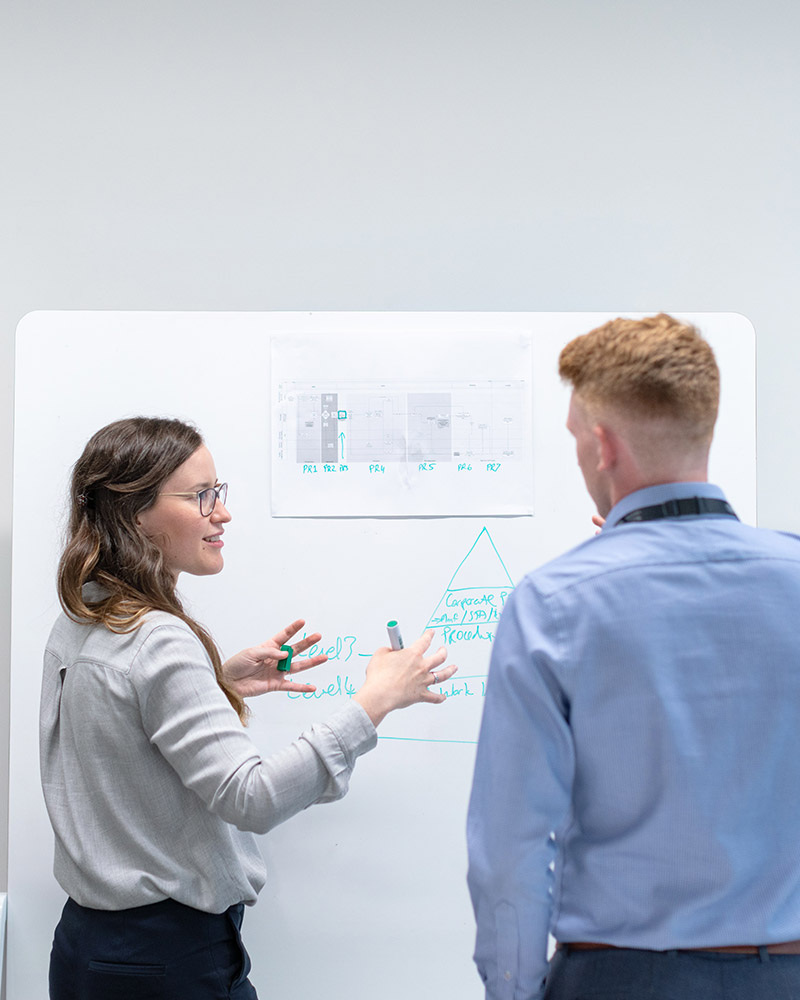To commit to conceptual and empirical research in order to further our understanding of the role, dynamics, and impact of businesses in creating sustainable social, environmental, and economic value.
PRINCIPLE No. 4: RESEARCH
52
CSR articles in academic journals in 2020

2020
Faced with the social and environmental emergency, businesses must transform their economic models and how they are run in order to improve the impact of their activities on all of their stakeholders.
To better understand just how this sustainable transformation will come about, the Positive Impact chair at Audencia, in partnership with NAO Consulting, carried out a qualitative study based on 7 companies committed to a positive impact (ARMOR, CAMIF, the Eram Group, La Florentaise, Interface, InVivo Group and Posson Packaging).
The study, conducted by Audencia’s Positive Impact chair, aims to inspire the players in sustainable transformation in businesses, whether they are directors, employees or consultants, or even teachers, students or policy makers. It highlights the diversity of approaches in case studies and identifies the main levers and key factors for success.

2020
Gender equality at work has not yet been achieved, including in the culture sector. However, several organisations in this sector are implementing action plans to address inequality (through evening up salaries, establishing quotas and carrying out in-depth alterations to human resource policies within organisations).
To improve the impact of gender equality plans, the Positive Impact chair carried out a sociological study intended to analyse the individual and collective constraints and levers in relation to the gender equality policy of Trempolino, an association in Nantes dedicated to modern music.
Ameline Bordas carried out this qualitative study with the support of Jérémy Vachet and Mélanie Gourves and questioned 11 employees from Trempolino. Several levers were identified:
- Sharing an in-house desire to promote women in the sector without discarding men, and publicising it.
- Deconstructing assimilated gender stereotypes, overcoming differing perceptions on equality, gender equality, everyday sexism AND reconfiguring common standards.
- Sharing tools to act daily and limit the feeling of fatalism (through a specialist, a system of tools, etc.).

2020
CARES stands for the Community for Action and Research on Environment and Societies. This collective brings together more than 40 members of the teaching staff from all of Audencia’s departments. It is an experimental group for research, teaching and broader societal commitment that focuses on major challenges such as those featured in the United Nation’s Sustainable Development Goals. The distinctive characteristics of the CARES group are inclusion, cross-functionality and multi-disciplinarity.
As active and committed academic citizens, we strive to enable transformative change towards sustainability by calling into question existing paradigms, by exploring alternatives and by imagining new possibilities. As indicated in the IPCC’s 2018 report on climate change, we require, “rapid, far-reaching and unprecedented changes in all aspects of society”. Naturally, this can only happen in interaction and collaboration with other people, particularly the students, local communities, professionals, change managers, regulators and many others still.
Individually and collectively, we take part in research to reinforce and improve the theoretical and practical foundations of sustainable development. This is accomplished through regular interactions (such as research seminars, workshops, meetings, etc.) with universities, people in the field and experts, but also with the local communities within and outside our institution. We develop and implement teaching material to call into question and revamp our programme of studies. We also take part in local and international actions and movements to contribute to broader societal changes. This is achieved, for example, by actively participating in networks such as the United Nation’s Principles for Responsible Management Education (PRME), CR3+, the Business for Sustainability network or the B Academy (B-Lab academic network).

Objective for 2021
In keeping with the research work that she has been carrying out for several years on the horticultural sector, within the Strategist UMT*, Gervaise Debucquet, a professor at Audencia, is jointly supervising a thesis on urban agriculture with the INRAE and the University of Nantes. This thesis is being written by Lucas Perry, a young agronomist focusing on the acceptability of this form of agriculture, which is becoming increasingly popular in all major western cities, whilst questioning the cultural perceptions associated with conventional agriculture. Urban agriculture contributes to a form of urban resilience to climate change, fosters social cohesion and participates in producing sustainable food. The challenge that remains is to better understand how urban consumers perceive the fruit and vegetables produced within the city, as well as to what extent they will commit to supporting the many entrepreneurial projects centred on urban agriculture, according to their production system, whether planted in open ground, on soil-free substrate or indoors.
*https://www6.inrae.fr/umt-stratege/
Audencia is a supportive partner of this UMT since its creation in 2017.


